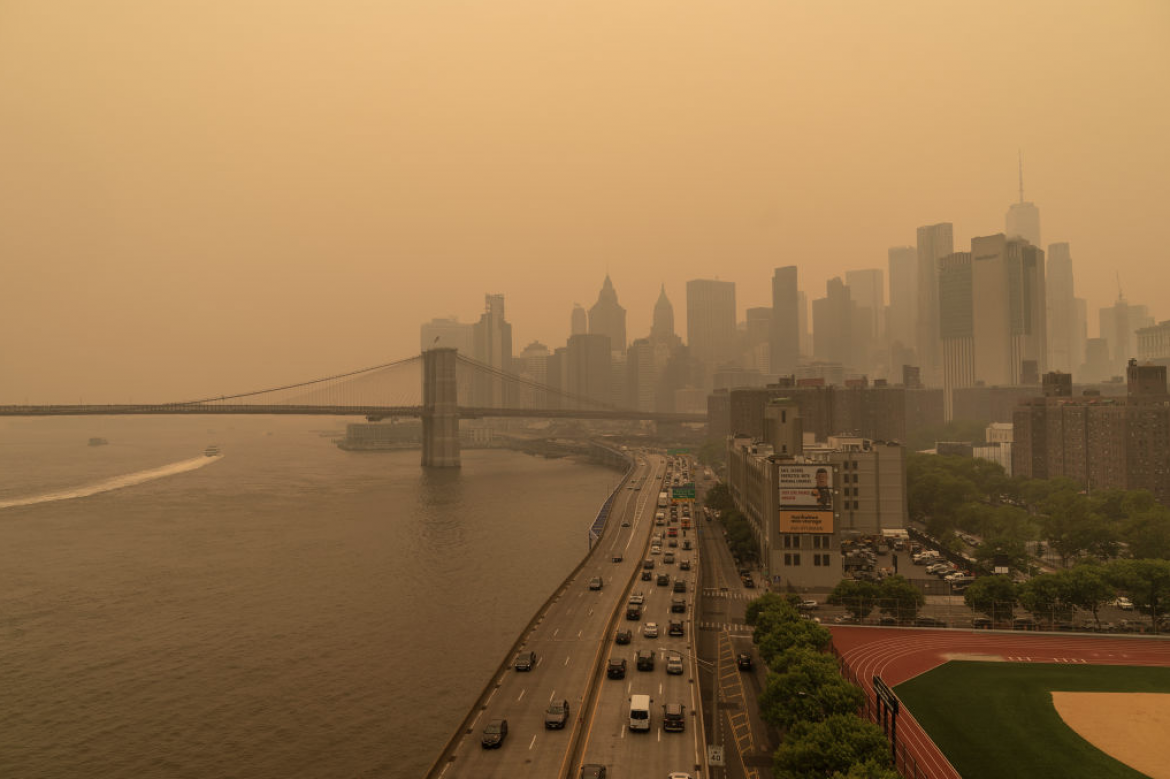Smoke from over 150 wildfires ablaze in Quebec is traveling across Canada over to areas of the US. According to reports, millions in Canada and Northern US are breathing in hazardous air, and residents have been advised to stay indoors or wear N95 masks whilst outdoors.
Officials report that Canada has been experiencing its worst fire season to date over the span of the last six weeks.
Wildfires first picked up in British Colombia and Alberta in Canada in April earlier this year and continued to spread, now with over 150 fires burning across the Canadian border, and 9.3 million acres of land charred, according to CBS.
In a report published by Reuters, Quebec Premier Francois Legault reports that over 11,400 people have been evacuated from parts of northern Quebec and another 4,000 will be evacuated soon. With low chances of rainfall, officials have advised residents not to expect to return home before the weekend.
“Intense” smoke is also stretching across Canada into Northern parts of the US, with densely populated areas like New York struggling through poor air quality, shrouded in an orange haze.
View this post on Instagram
An article published by Time Magazine reads:
“The smoke’s trajectory follows the wind, which is currently traveling north to south, and as a result, bringing smoke from fires in eastern Canada, towards the U.S. northeast and midwest.”
Tom Kines, a senior meteorologist at AccuWeather, tells Time:
“Usually when you get smoke it’s higher up in the atmosphere and it comes across as haze,”
“But in this particular instance, there’s so much smoke, it’s close to the ground. And not only is it reducing visibility, it’s causing air quality issues, and also you can smell the smoke.”
New York’s Governor Kathy Hochul announced on Wednesday that the city would distribute one million free masks to state residents on Thursday. “This is a temporary situation. This is not Covid,” she said at a news conference.
According to exports, smoke caused by wildfires can cause an array of health issues.
Matthew Adams, a professor at the University of Toronto and the director of its Centre of Urban Environments tells the BBC that there can be immediate effects and serious long-term health issues linked to wildfire smoke.
Prof Adams says:
“Immediate effects of inhaling wildfire smoke include shortness of breath, an elevated pulse, chest pain, or inflammation in the eyes, nose and throat will be experienced.”
“And the people that are visiting the hospital typically have a pre-existing respiratory disease.”
Prof Adams goes on to explain that wildfire smoke has also been linked to serious, long-term health issues like cancer or lung disease and some studies have shown that prolonged wildfire smoke exposure can affect pregnant women and their unborn children, too.
However, he adds that residents should not “get so concerned about it” and stay inside to reduce exposure to hazardous air.

